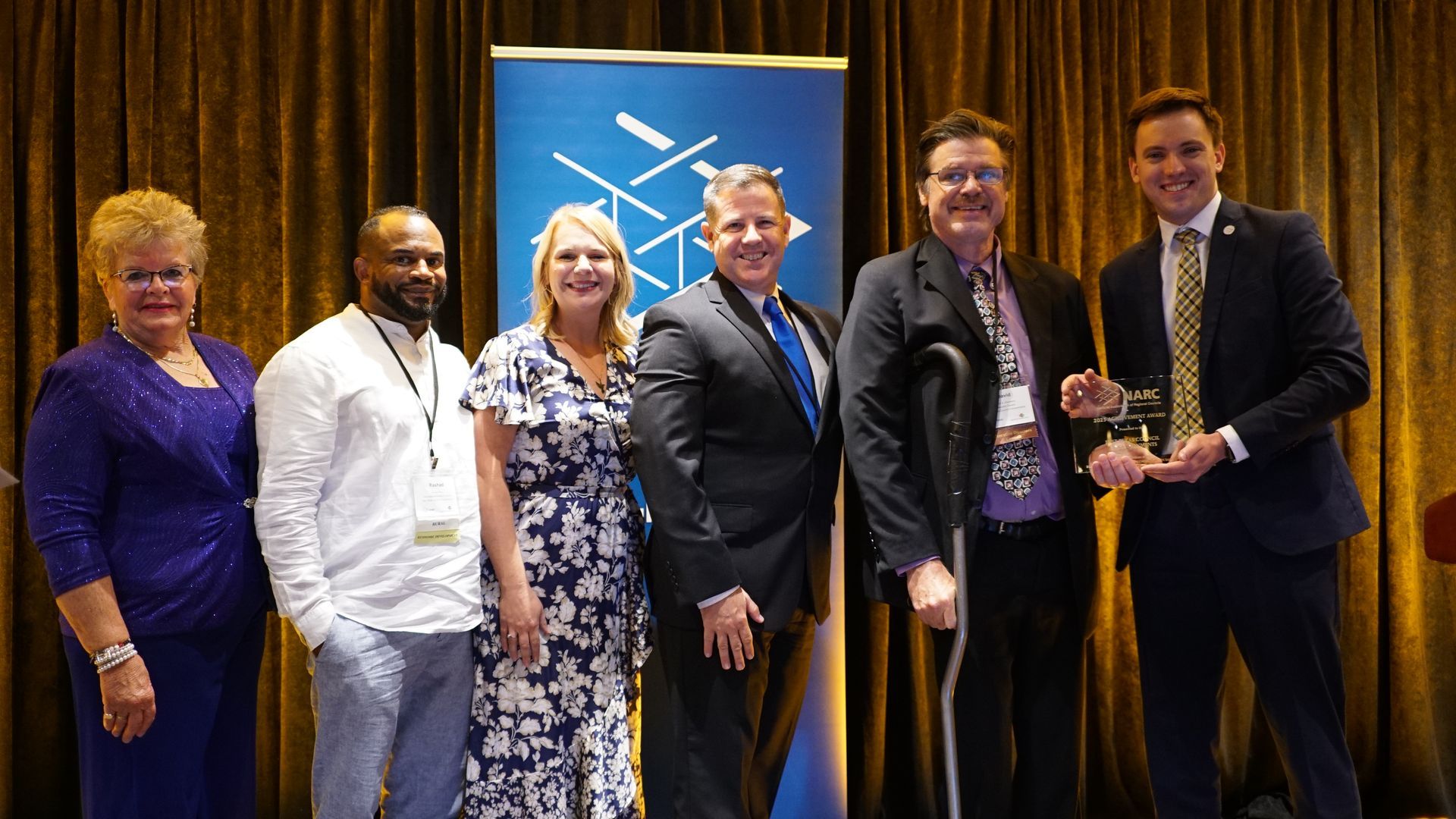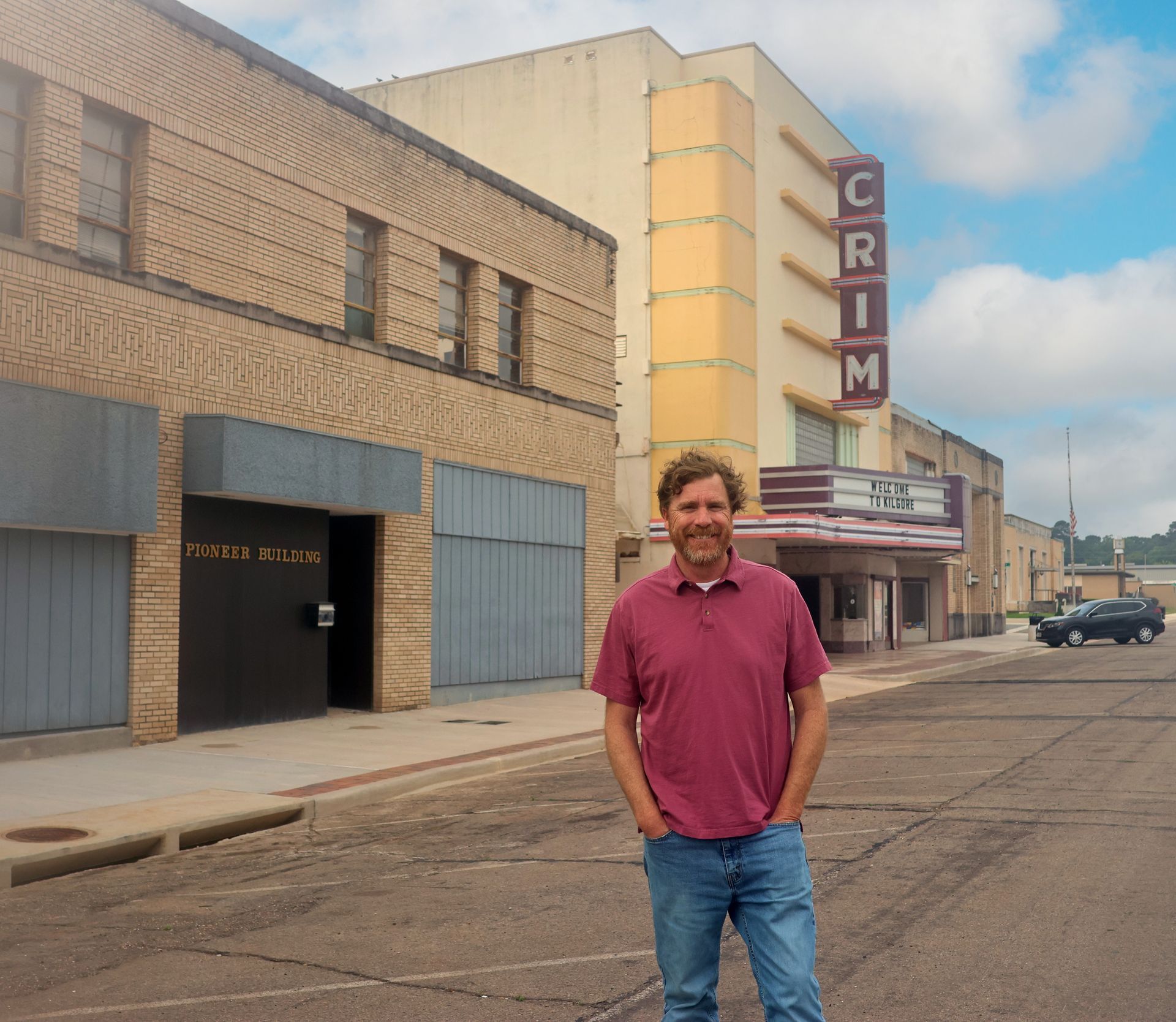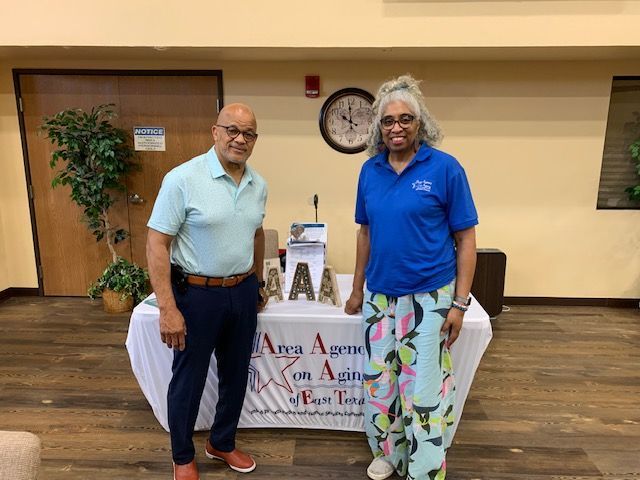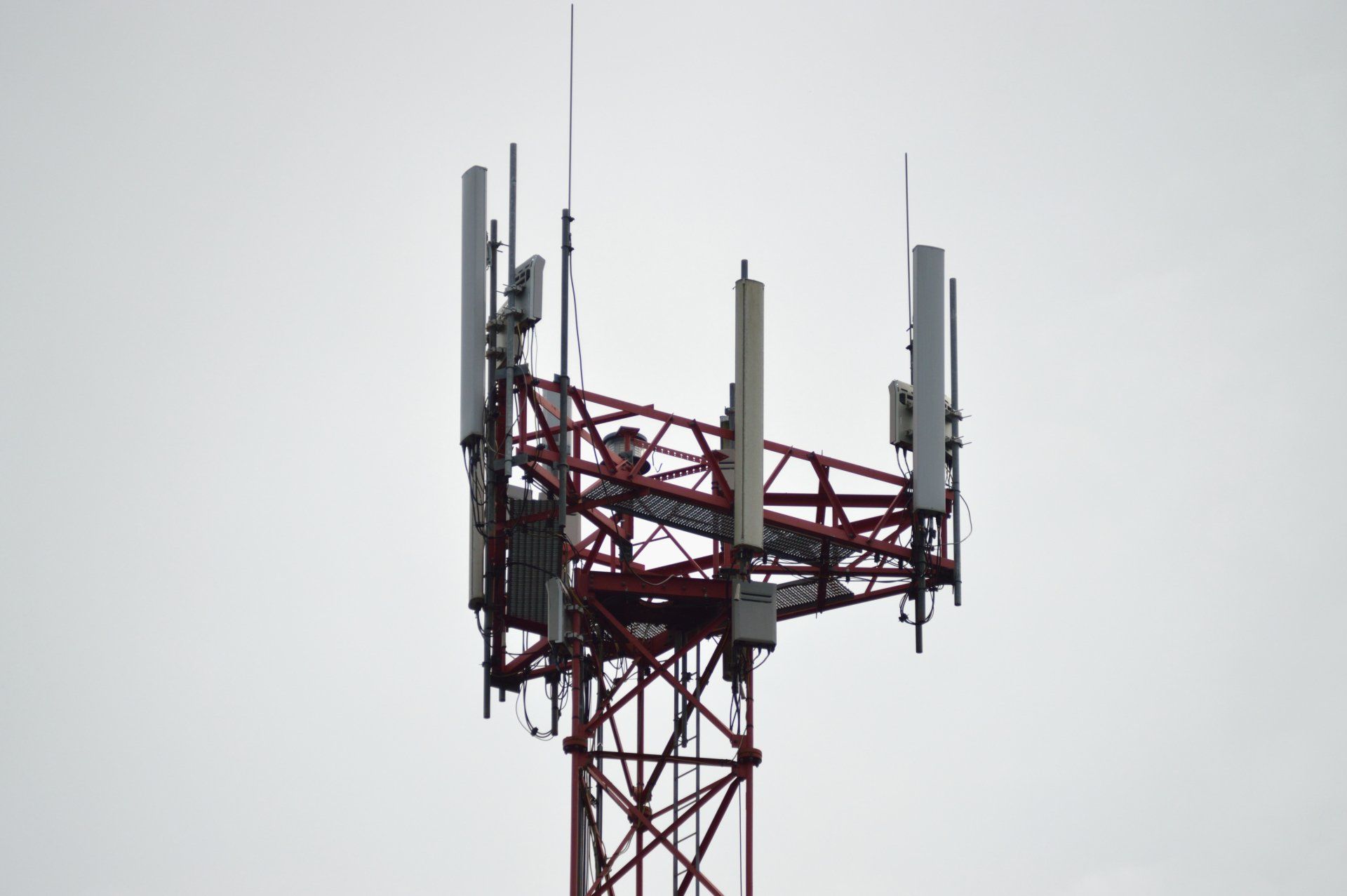Governor Abbott Issues Executive Order To Expand Openings Of Certain Businesses and Activities
Office of the Texas Governor, Greg Abbott • May 5, 2020

WHEREAS, I, Greg Abbott, Governor of Texas, issued a disaster proclamation on March 13, 2020, certifying under Section 418.014 of the Texas Government Code that the novel coronavirus (COVID-19) poses an imminent threat of disaster for all counties in the State of Texas; and
WHEREAS, on April 12, 2020, I issued a proclamation renewing the disaster declaration for all counties in Texas; and
WHEREAS, the Commissioner of the Texas Department of State Health Services (DSHS), Dr. John Hellerstedt, has determined that COVID-19 represents a public health disaster within the meaning of Chapter 81 of the Texas Health and Safety Code, and renewed that determination on April 17, 2020; and
WHEREAS, I have issued executive orders and suspensions of Texas laws in response to COVID-19, aimed at protecting the health and safety of Texans and ensuring an effective response to this disaster; and
WHEREAS, I issued Executive Order GA-08 on March 19, 2020, mandating certain obligations for Texans in accordance with the President’s Coronavirus Guidelines for America, as promulgated by President Donald J. Trump and the Centers for Disease Control and Prevention (CDC) on March 16, 2020, which called upon Americans to take actions to slow the spread of COVID-19 for 15 days; and
WHEREAS, I issued Executive Order GA-14 on March 31, 2020, based on the President’s announcement that the restrictive Guidelines should extend through April 30, 2020, in light of advice from Dr. Anthony Fauci and Dr. Deborah Birx, and also based on guidance by DSHS Commissioner Dr. Hellerstedt and Dr. Birx that the spread of COVID-19 can be reduced by minimizing social gatherings; and
WHEREAS, Executive Order GA-14 superseded Executive Order GA-08 and expanded the social-distancing restrictions and other obligations for Texans, aimed at slowing the spread of COVID-19 and protecting public health and safety; and
WHEREAS, after more than two weeks of having in effect the heightened restrictions like those required by Executive Order GA-14, which had saved lives, it was clear that the disease still presented a serious threat across Texas that could persist in certain areas, but also that COVID-19 had wrought havoc on many Texas businesses and workers affected by the restrictions that were necessary to protect human life; and
WHEREAS, on April 17, 2020, I therefore issued Executive Order GA-17, creating the Governor’s Strike Force to Open Texas to study and make recommendations on safely and strategically restarting and revitalizing all aspects of the Lone Star State—work, school, entertainment, and culture; and
WHEREAS, also on April 17, 2020, I issued Executive Order GA-16 to generally continue through April 30, 2020, the same social-distancing restrictions and other obligations for Texans according to federal guidelines, but also to offer a safe, strategic first step to Open Texas, including permitting retail pick-up and delivery services; and
WHEREAS, I subsequently issued Executive Order GA-18 on April 27, 2020, to expand the services that are reopened in Texas, including allowing in-store retail and dine-in restaurant services at establishments operating within specific capacity limits; and
WHEREAS, as normal business operations resume, everyone must act safely, and to that end Executive Order GA-18 and this executive order provide that all persons should follow the health protocols recommended by DSHS, which whenever achieved will mean compliance with the minimum standards for safely reopening, but which should not be used to fault those who act in good faith but can only substantially comply with the standards in light of scarce resources and other extenuating COVID-19 circumstances; and
WHEREAS, Texas must continue to protect lives while restoring livelihoods, both of which can be achieved with the expert advice of medical professionals and business leaders; and
WHEREAS, the “governor is responsible for meeting … the dangers to the state and people presented by disasters” under Section 418.011 of the Texas Government Code, and the legislature has given the governor broad authority to fulfill that responsibility; and
WHEREAS, under Section 418.012, the “governor may issue executive orders … hav[ing] the force and effect of law;” and
WHEREAS, under Section 418.016(a), the “governor may suspend the provisions of any regulatory statute prescribing the procedures for conduct of state business … if strict compliance with the provisions … would in any way prevent, hinder, or delay necessary action in coping with a disaster;” and
WHEREAS, under Section 418.017(a), the “governor may use all available resources of state government and of political subdivisions that are reasonably necessary to cope with a disaster;” and
WHEREAS, under Section 418.018(c), the “governor may control ingress and egress to and from a disaster area and the movement of persons and the occupancy of premises in the area;” and
WHEREAS, under Section 418.173, failure to comply with any executive order issued during the COVID-19 disaster is an offense punishable by a fine not to exceed $1,000, confinement in jail for a term not to exceed 180 days, or both fine and confinement.
NOW, THEREFORE, I, Greg Abbott, Governor of Texas, by virtue of the power and authority vested in me by the Constitution and laws of the State of Texas, do hereby order the following on a statewide basis effective immediately, and continuing through May 19, 2020, subject to extension based on the status of COVID-19 in Texas and the recommendations of the Governor’s Strike Force to Open Texas, the White House Coronavirus Task Force, and the CDC:
In accordance with guidance from DSHS Commissioner Dr. Hellerstedt, and to achieve the goals established by the President to reduce the spread of COVID-19, every person in Texas shall, except where necessary to provide or obtain essential services or reopened services, minimize social gatherings and minimize in-person contact with people who are not in the same household. People over the age of 65, however, are strongly encouraged to stay at home as much as possible; to maintain appropriate distance from any member of the household who has been out of the residence in the previous 14 days; and, if leaving the home, to implement social distancing and to practice good hygiene, environmental cleanliness, and sanitation.
“Essential services” shall consist of everything listed by the U.S. Department of Homeland Security (DHS) in its Guidance on the Essential Critical Infrastructure Workforce, Version 3.0 or any subsequent version, plus religious services conducted in churches, congregations, and houses of worship. Other essential services may be added to this list with the approval of the Texas Division of Emergency Management (TDEM). TDEM shall maintain an online list of essential services, as specified in this executive order and any approved additions. Requests for additions should be directed to TDEM at EssentialServices@tdem.texas.gov
or by visiting the TDEM website at www.tdem.texas.gov/essentialservices.
“Reopened services” shall consist of the following to the extent they are not already “essential services:”
- Retail services that may be provided through pick-up, delivery by mail, or delivery to the customer’s doorstep.
- In-store retail services, for retail establishments that operate at up to 25 percent of the total listed occupancy of the retail establishment.
- Dine-in restaurant services, for restaurants that operate at up to 25 percent of the total listed occupancy of the restaurant; provided, however, that
- this applies only to restaurants that have less than 51 percent of their gross receipts from the sale of alcoholic beverages;
- the occupancy limits do not apply to customers seated in outdoor areas of the restaurant; and
- valet services are prohibited except for vehicles with placards or plates for disabled parking.
- Movie theaters that operate at up to 25 percent of the total listed occupancy of any individual theater for any screening.
- Shopping malls that operate at up to 25 percent of the total listed occupancy of the shopping mall; provided, however, that within shopping malls, the food-court dining areas, play areas, and interactive displays and settings must remain closed.
- Museums and libraries that operate at up to 25 percent of the total listed occupancy; provided, however, that
- local public museums and local public libraries may so operate only if permitted by the local government, and
- any components of museums or libraries that have interactive functions or exhibits, including child play areas, must remain closed.
- Services provided by an individual working alone in an office, effective until 12:01 a.m. on Monday, May 18, 2020, when this single-person office provision is superseded by the expanded office-based services provision set forth below.
- Golf course operations.
- Local government operations, including county and municipal governmental operations relating to permitting, recordation, and document-filing services, as determined by the local government.
- Wedding venues and the services required to conduct weddings; provided, however, that for weddings held indoors other than at a church, congregation, or house of worship, the facility may operate at up to 25 percent of the total listed occupancy of the facility.
- Wedding reception services, for facilities that operate at up to 25 percent of the total listed occupancy of the facility; provided, however, that the occupancy limits do not apply to the outdoor areas of a wedding reception or to outdoor wedding receptions.
- Starting at 12:01 a.m. on Friday, May 8, 2020:
- Cosmetology salons, hair salons, barber shops, nail salons/shops, and other establishments where licensed cosmetologists or barbers practice their trade; provided, however, that all such salons, shops, and establishments must ensure at least six feet of social distancing between operating work stations.
- Tanning salons; provided, however, that all such salons must ensure at least six feet of social distancing between operating work stations.
- Swimming pools; provided, however, that (i) indoor swimming pools may operate at up to 25 percent of the total listed occupancy of the pool facility; (ii) outdoor swimming pools may operate at up to 25 percent of normal operating limits as determined by the pool operator; and (iii) local public swimming pools may so operate only if permitted by the local government.
- Starting at 12:01 a.m. on Monday, May 18, 2020:
- Services provided by office workers in offices that operate at up to the greater of (i) five individuals, or (ii) 25 percent of the total office workforce; provided, however, that the individuals maintain appropriate social distancing.
- Manufacturing services, for facilities that operate at up to 25 percent of the total listed occupancy of the facility.
- Gyms and exercise facilities and classes that operate at up to 25 percent of the total listed occupancy of the gym or exercise facility; provided, however, that locker rooms and shower facilities must remain closed, but restrooms may open.
- For Texas counties that have filed with DSHS, and are in compliance with, the requisite attestation form promulgated by DSHS regarding five or fewer cases of COVID-19, those in-store retail services, dine-in restaurant services, movie theaters, shopping malls, museums and libraries, indoor wedding venues, wedding reception services, swimming pools, services provided by office workers in offices of more than five individuals, manufacturing services, and gyms and exercise facilities and classes, as otherwise defined and limited above, may operate at up to 50 percent (as opposed to 25 percent).
- Such additional services as may be enumerated by future executive orders or proclamations by the governor.
The conditions and limitations set forth above for reopened services shall not apply to essential services. The total listed occupancy limits described above refer to the maximum occupant load set by local or state law, but for purposes of this executive order, staff members are not included in determining operating levels except for non-essential manufacturing service providers and services provided by office workers. Notwithstanding anything herein to the contrary, the governor may by proclamation identify any county or counties in which reopened services are thereafter prohibited, in the governor’s sole discretion, based on the governor’s determination in consultation with medical professionals that only essential services should be permitted in the county, including based on factors such as an increase in the transmission of COVID-19 or in the amount of COVID-19-related hospitalizations or fatalities.
In providing or obtaining essential services or reopened services, all persons (including individuals, businesses and other organizations, and any other legal entity) should use good-faith efforts and available resources to follow the minimum standard health protocols recommended by DSHS, found at www.dshs.texas.gov/coronavirus. All persons should also follow, to the extent not inconsistent with the DSHS minimum standards, the Guidelines from the President and the CDC, as well as other CDC recommendations. Individuals are encouraged to wear appropriate face coverings, but no jurisdiction can impose a civil or criminal penalty for failure to wear a face covering. Nothing in this executive order or the DSHS minimum standards precludes requiring a customer wishing to obtain services to follow additional hygiene measures.
Religious services should be conducted in accordance with the joint guidance issued and updated by the attorney general and governor.
People shall avoid visiting bars, massage establishments, tattoo studios, piercing studios, sexually oriented businesses, or interactive amusement venues such as bowling alleys, video arcades, amusement parks, water parks, or splash pads, unless these enumerated establishments or venues are specifically added as a reopened service by proclamation or future executive order of the governor. Notwithstanding anything herein to the contrary, the governor may by proclamation add to this list of establishments or venues that people shall avoid visiting. To the extent any of the establishments or venues that people shall avoid visiting also offer reopened services permitted above, such as restaurant services, these establishments or venues can offer only the reopened services and may not offer any other services. The use of drive-thru, pickup, or delivery options for food and drinks remains allowed and highly encouraged throughout the limited duration of this executive order.
This executive order does not prohibit people from accessing essential or reopened services or engaging in essential daily activities, such as going to the grocery store or gas station; providing or obtaining other essential or reopened services; visiting swimming pools, parks, beaches, rivers, or lakes; hunting or fishing; or engaging in physical activity like jogging, bicycling, or other outdoor sports, so long as the necessary precautions are maintained to reduce the transmission of COVID-19 and to minimize in-person contact with people who are not in the same household.
In accordance with the Guidelines from the President and the CDC, people shall not visit nursing homes, state supported living centers, assisted living facilities, or long-term care facilities unless to provide critical assistance as determined through guidance from the Texas Health and Human Services Commission (HHSC). Nursing homes, state supported living centers, assisted living facilities, and long-term care facilities should follow infection control policies and practices set forth by the HHSC, including minimizing the movement of staff between facilities whenever possible.
In accordance with the Guidelines from the President and the CDC, schools shall remain temporarily closed to in-person classroom attendance by students and shall not recommence before the end of the 2019-2020 school year, except that a student (accompanied by an adult if needed) may, as allowed by the school consistent with the minimum standard health protocols found in guidance issued by the Texas Education Agency (TEA), visit his or her school campus (a) for limited non-instructional administrative tasks such as cleaning out lockers, collecting personal belongings, and returning school items like band instruments and books; or (b) for graduating seniors, to complete post-secondary requirements that cannot be accomplished absent access to the school facility and its resources, excluding any activity or assessment which can be done virtually. Public education teachers and staff are encouraged to continue to work remotely from home if possible, but may return to schools to conduct remote video instruction, as well as perform administrative duties, under the minimum standard health protocols found in guidance issued by the TEA. Private schools and institutions of higher education should establish similar standards to allow teachers and staff to return to schools to conduct remote video instruction and perform administrative duties when it is not possible to do so remotely from home. Notwithstanding anything herein to the contrary, schools may conduct graduation ceremonies consistent with the minimum standard health protocols found in guidance issued by the TEA. Nothing in this executive order, the DSHS minimum standards, or the joint guidance issued and updated by the attorney general and governor precludes churches, congregations, and houses of worship from using school campuses for their religious services or other allowed services.
This executive order shall supersede any conflicting order issued by local officials in response to the COVID-19 disaster, but only to the extent that such a local order restricts essential services or reopened services allowed by this executive order, allows gatherings prohibited by this executive order, or expands the list of essential services or the list or scope of reopened services as set forth in this executive order. I hereby suspend Sections 418.1015(b) and 418.108 of the Texas Government Code, Chapter 81, Subchapter E of the Texas Health and Safety Code, and any other relevant statutes, to the extent necessary to ensure that local officials do not impose restrictions in response to the COVID-19 disaster that are inconsistent with this executive order, provided that local officials may enforce this executive order as well as local restrictions that are consistent with this executive order.
This executive order supersedes Executive Order GA-18, but does not supersede Executive Orders GA-10, GA-13, GA-17, GA-19, or GA-20. This executive order shall remain in effect and in full force until 11:59 p.m. on May 19, 2020, unless it is modified, amended, rescinded, or superseded by the governor.
Given under my hand this the 5th day of May, 2020.
Governor Greg Abbott

On Friday, July 29, ETCOG will host Rebuilding the FortFort for a Strategic Listening Session from 9:00 AM to 1:00 PM. The event will be held at ETCOG offices located at 3800 Stone Road in Kilgore, with lunch provided courtesy of BBKLAW.COM . This session will introduce Rebuilding the Fort’s veteran-led model for community revitalization, focused on: Activating affordable housing Advancing workforce development Driving economic transformation in underutilized neighborhoods Their team has successfully implemented this approach in cities such as Fort Worth, Hurst, and Balch Springs using tools like: Pattern books with pre-approved housing designs Land banks and housing trust funds Layered financing strategies (TIF, LIHTC, CDBG, PRI) Veteran development labs and public-private partnerships This is not just a presentation—it’s a working session. They're here to listen, learn, and collaborate with leaders in East Texas with the goal of identifying communities ready to lead regional transformation with the support of a scalable, proven platform. RSVP by emailing support@rebuildingthefort.com.

The National Association of Regional Councils (NARC) awarded the East Texas Council of Governments (ETCOG) an Achievement Award for its efforts to build veteran-friendly communities in East Texas. Regional Achievement awards are presented annually to recognize excellence in programs and services of regional councils, metropolitan planning organizations (MPOs), and other regional organizations across the country. The Achievement Awards were presented during a ceremony at the recent NARC 59th Annual Conference & Exhibition in Seattle, Washington, where ETCOG received the Rural Award. Launched in July 2024, the Veteran-Friendly Community Designation Program was developed by ETCOG in collaboration with the Alamo Area Council of Governments, the University of Texas at Tyler, and the University of Texas at San Antonio. The program formally recognizes communities that show strong, lasting support for military veterans through policies, services, and community involvement. It requires each participating city or county to provide a comprehensive community profile, develop a plan focused on veterans, and commit to an annual self-assessment to maintain the designation. Tyler/Smith County and Quitman/Wood County were the first to receive the designation and have become good models of how to support veterans in areas such as housing, employment, healthcare, and education. “We’re proud to be recognized by NARC for a program that recognizes the men and women that lay their lives on the line to keep us free!,” said David Cleveland, Executive Director of ETCOG. “In East Texas, we’ve always believed in taking care of our veterans—not just with words, but with our actions. This award means a great deal to us, and it demonstrates that when communities come together with a clear purpose, we can build something that truly makes a difference. We hope this program becomes a blueprint for how regions can support and encourage those who served all of us.” ETCOG has been a long-time member of NARC, whose member organizations are comprised of multiple local governments that work together to serve American communities, large and small, urban and rural. Eight projects submitted from regional planning agencies across the nation received Achievement Awards. About the National Association of Regional Councils NARC serves as a national voice for regions by advocating for regional cooperation as the most effective way to address a variety of community planning and development opportunities and issues. NARC’s member organizations are composed of multiple local governments that work together to serve American communities – large and small, urban and rural. For more information about NARC awards, conferences, and leadership, visit www.NARC.org .

Executive Director David Cleveland has named Luke Kimbrough as the new Regional Lending Manager for the East Texas Council of Governments (ETCOG). In this role, Kimbrough will oversee the day-to-day operations of the East Texas Regional Development Company’s (ETRDC) small business loan programs. He will work closely with the ETRDC Board, manage financial and administrative services, and ensure the program follows all state and federal guidelines. Kimbrough brings with them more than seven years of experience in banking and employee benefits. Before accepting this position, Kimbrough served as CEO of the Banking Center at Citizens Bank in Gladewater. His previous roles include Vice President at First National Bank of Hughes Springs in Liberty City, Benefits Consultant for Colonial Life in Longview, and Branch Manager for Regions Bank in Kilgore. Before his banking career, Mr. Kimbrough served for several years as the Director of Public Information and Regional Services at ETCOG. “It is a great pleasure for me to welcome Luke back to the ETCOG Family! His exceptional work in the banking community for many years position him for even greater success with our ETRDC Business Lending Programs. I am glad he is back and am even more excited to see the steady growth and expansion of one of our most important economic development programs that will undoubtedly occur under his leadership!” said Executive Director David Cleveland. “I am excited to come back to ETCOG and the East Texas Regional Development Company,” said Kimbrough. “Spending the last decade in banking, I have gained much more experience in financial analysis and commercial lending. There is a lot of work ahead to help the businesses and economy of East Texas.” The ETRDC is a nonprofit organization that is certified and regulated by the U.S. Small Business Administration. Its main purpose is to support local economic development by helping small businesses access long-term, fixed-rate financing. ETRDC offers financing through the SBA 504 Loan Program and Chapman Loan Program. About the ETRDC Since 1983, the East Texas Regional Development Company has provided small businesses in Texas with the financing they need to expand or even start their business. The East Texas Regional Development Company, or ETRDC, is a private, nonprofit organization formed to assist small businesses. The ETRDC is administered and housed within the East Texas Council of Governments. Find out more at www.etrdc.com.

Recently, the Texas Veterans Commission's (TVC) Fund for Veterans' Assistance (FVA) announced its largest funding in the 16-year history of FVA programs, with 213 grants totaling $46,315,000 to provide services to an estimated 40,000 veterans. ETCOG is proud to be one of the grant recipients selected with $250,000 of those funds to provide GoBus transportation services for veterans in our 14-county service region. "It is an honor to receive this funding award from the Texas Veterans Commission and Chair Koerner, which allows us to continue our mission to support all East Texas veterans," said Vince Huerta, GoBus Director. "We are dedicated to growing the program and look forward to assisting more veterans this year." With the grant, our public transit system, GoBus, will fund trips to and from medical, dental, and mental health appointments, as well as trips for basic needs such as grocery stores, community meetings, voting, court appearances, and tax offices. These trips are available to veterans, veteran spouses and dependents, survivor spouses, and active military personnel. The grant is in partnership with over $46.3 million in grants for veterans, Governor Abbott announced on May 20 . “Texas is forever indebted to the brave men and women who answered the call to serve in our nation's military,” said Governor Abbott. “The State of Texas is home to over 1.5 million veterans—more than any other state. This has shaped our mission to provide wide-ranging services for veterans and their families. With over $46,315,000 in state grants, Texas will help thousands of veterans and their families access vital support and resources needed to thrive in our great state. Texas will always support our veterans and honor their sacrifices to our state and our nation.” Find out about all veteran transport services GoBus offers by visiting www.gobustransit.com/govet .

ETCOG is calling on cities and communities across the region to nominate potential Brownfield sites for assessment and revitalization as part of a new initiative to support sustainable development and environmental stewardship. A Brownfield is any property, typically abandoned, underused, or industrial, that may be complicated by the presence or potential presence of hazardous substances, pollutants, or contaminants. Through ETCOG’s Brownfield Assessment Program, local governments and property owners may receive free environmental assessments to determine site conditions and open the door to redevelopment opportunities. ETCOG was awarded a U.S. EPA Brownfield Coalition Assessment Grant in 2023, so our region could access up to $1 million in funding to: Develop an inventory of Brownfield sites Conduct Phase I and Phase II Environmental Site Assessments (ESAs) Evaluate sites impacted by hazardous substances or petroleum Perform site investigations, asbestos and lead-based paint surveys Plan for cleanup and reuse strategies Benefits of Brownfield Redevelopment Include: Increased property values Enhanced public health and environmental safety New job creation and business development Reuse of existing infrastructure Elimination of blight and community eyesores Participation is completely voluntary, and all eligible activities could be covered at no cost to property owners. Communities are encouraged to take advantage of this opportunity to address challenging properties and bring new life to underutilized areas. Submit Your Site Nomination by using the form linked below. If you know of a site in your city that may be a candidate for Brownfield revitalization , please contact: Bridget Booty, Economic Development Specialist (903) 218-6421 Bridget.Booty@etcog.org

The City of Kilgore recently secured two Community Development Block Grants (TxCDBG) in the same round—thanks to strategic timing, guidance from local consultants, and support from the East Texas Council of Governments (ETCOG). One of these grants is helping fast-track long-needed sidewalk improvements in the city’s entertainment district, part of an ongoing downtown revitalization effort. “We were primed to get the maximum amount of points,” said Clay Evers, Kilgore’s Public Works Director. “It made sense to apply for downtown revitalization funding to complete sidewalk improvements along the rest of the corridor, which otherwise would have taken years if the city had to fund it alone.” The area near the historic post office and the newly renovated Texan Theater has seen increased activity, and this grant helps the city keep pace. Previous streetscape improvements had brought upgrades close to Main Street, and this new funding allows that work to continue—connecting key areas of Kilgore’s growing downtown. At the time of the grant application, this project wasn’t even listed in the city’s near-term plans. “It wasn’t on the five-year Capital Improvement Plan (CIP). In fact, it wasn’t even on the ten-year CIP,” said Evers. “This project was so far down the list that without this opportunity, we wouldn’t have touched it for a very long time.” The grant was made possible, in part, by insight from ETCOG and other grant administrators who informed the city that it was likely to score well in the 2022 application cycle. That foresight made all the difference. “The good thing is that ETCOG, along with other partners, generally has a good sense of how your project will score,” Evers noted. “Their guidance helps us pursue opportunities that are truly within reach.” He expressed gratitude for the collaboration and funding that will help transform downtown Kilgore even faster than expected. “We’re grateful to our local partners and the Texas Department of Agriculture for considering our project and deciding it was worth funding,” said Evers. “This is a great boon to our entertainment district—and it’s going to put us five to ten years ahead of where we would’ve been.”

Throughout May, the Area Agency on Aging of East Texas (AAA) will join organizations across the nation in celebrating Older Americans Month (OAM), led by the Administration for Community Living, honoring the vital contributions of older adults in our communities. AAA will host four special events at senior and community centers across East Texas, each focused on the theme of “Flip the Script on Aging,” — encouraging a shift in how society views and talks about aging, prompting individuals and communities to challenge stereotypes and embrace the opportunities that come with older age. “Older Americans Month is a powerful opportunity to honor the contributions of older adults and recognize the vital role they play in our communities,” said David Cleveland, Executive Director of ETCOG. “This year’s theme, Flip the Script on Aging, challenges us to move beyond outdated stereotypes and embrace the strength, wisdom, and resilience that come with age. We invite everyone to join us at our regional celebration events as we uplift the voices and experiences of older East Texans.” The following OAM celebration events are free and open to the public, featuring food, fun, door prizes, and information on services available to East Texas seniors: May 7 at the Henderson Community Building, 302 Fair Park, Henderson | 10:00 AM – 1:00 PM May 15 at First Methodist Church, 225 Lovers Ln, Athens | 9:30 AM – 2:00 PM May 16 at Jefferson Senior Center, 111 W. Broadway, Jefferson | 9:00 AM – 12:30 PM May 21 at Harrison County AgriLife Extension Office, 2005 Warren Dr, Marshall | 9:00 AM – 12:00 PM The AAA is the region's leader in advocating and providing various services, such as information and referral, benefits counseling, case management, health education classes, senior nutrition, and support through the Ombudsman program for people in nursing and assisted living facilities. These services help older individuals live independent, meaningful, and dignified lives in their own homes and communities for as long as possible. Contact the AAA for questions about the events by calling (903) 218-6500.



